Learn more about the speakers at the Belinda Sutton Symposium, Charting The Aftermath of Equality: Brown, SFFA & the Continuing Struggle for Racial Justice.
Kevin Brown
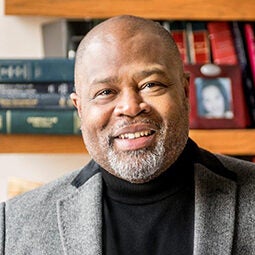
Mitchell Willoughby Distinguished Professor, University of South Carolina School of Law
Richard S. Melvin Professor Emeritus, Indiana University Maurer School of Law
Professor Brown was on the faculty of Indiana University Maurer School of Law from January 1987 until he took emeritus status in June 2022. He then joined the University of South Carolina School of Law as the Mitchell Willoughby Distinguished Professor on July 1, 2022. Brown graduated from Yale Law School in 1982. He teaches Torts, Law and Education, Race & Law, and Transnational Inequality. Brown has been a visiting professor at the University of Texas School of Law, University of San Diego School of Law, University of Alabama School of Law, and the University of Illinois School of Law. He has been affiliated with universities on four different continents including the National Law School of India University in Bangalore, India; the Law Faculty of the University of Cape Town in Cape Town, South Africa; and the School of Transnational Law of Peking University in Shenzhen, China.
An original participant of the Critical Race Theory Workshop in Madison, Wisconsin in 1989 and the first People of Color Conference held in Chicago, Illinois in 1991, for 37 years his primary research interests are in the areas of race, law and education and transnational inequality. Brown has published over 90 articles or comments on issues such as critical race theory, school desegregation, affirmative action, African-American Immersion Schools, international boarding schools for African-Americans, increasing school choice, the impact of the African-Americans on anti-apartheid struggle in South Africa, and the inspiration the 250 million Dalits in India have drawn from African-Americans. Carolina Academic Press published his 2005 book entitled, Race, Law and Education in the Post Desegregation Era and his 2014 book entitled, Because of Our Success: The Changing Racial and Ethnic Ancestry of Blacks on Affirmative Action. Brown’s current book project is tentatively entitled CASTE ANALOGY REMIX: The Benefits for the Black Community from Comparing Their Liberation Struggle to that of Dalits in India.
A frequent speaker at scholarly conferences, Brown has spoken of issues of race, education, diversity or the global impact of African-Americans over 300 times including at the annual Convention of the NAACP, the Congressional Black Caucus Braintrust Meetings, the American Bar Association, and the celebration of the Justices of the Indiana Supreme Court for the 50th Anniversary of Brown v Board of Edcuation; at several leading law schools and universities including Harvard, Columbia, NYU, Vanderbilt, Virginia, Duke, Cornell, Emory, Northwestern, UCLA, and Texas; and including at Leeds University, Oxford University, University of Kasel, Al-Quds University outside Jerusalem, School of Oriental and African Studies of the University of London, School of Law and Humanities of China University of Mining and Technology-Beijing and the School of Transnational Law of Peking University, School of Law.
Professor Brown has a special relationship to the Dalit struggle in India. His first trip to India was a 5-month Fulbright Lectureship from Dec 1996 to May 1997. He has also led a group of 13, mostly African-American professors, on a 17 day trip through India in October of 2012. During this trip, their group participated in three academic conferences comparing the struggles of African-Americans with those of Dalits. He led a different group of 11 professors on a similar three-week journey to India in June and July of 2015 where they participated in five academic conferences structured on the same theme. Together, he has participated in over a dozen conferences in India comparing the liberation struggles of Dalits and African-Americans at institutions including the Indian Institute for Dalit Studies, University of Delhi, Jawaharlal Nehru University, Jindal Global Law School, National Law School in Bangalore, University of Mumbai and the Tata Institute. Brown has also spoken at celebrations of the work of Dr. Ambedkar in London, at Columbia University, New Delhi, Mumbai, Hyderabad, Varanasi, and Bangalore.
Tomiko Brown-Nagin
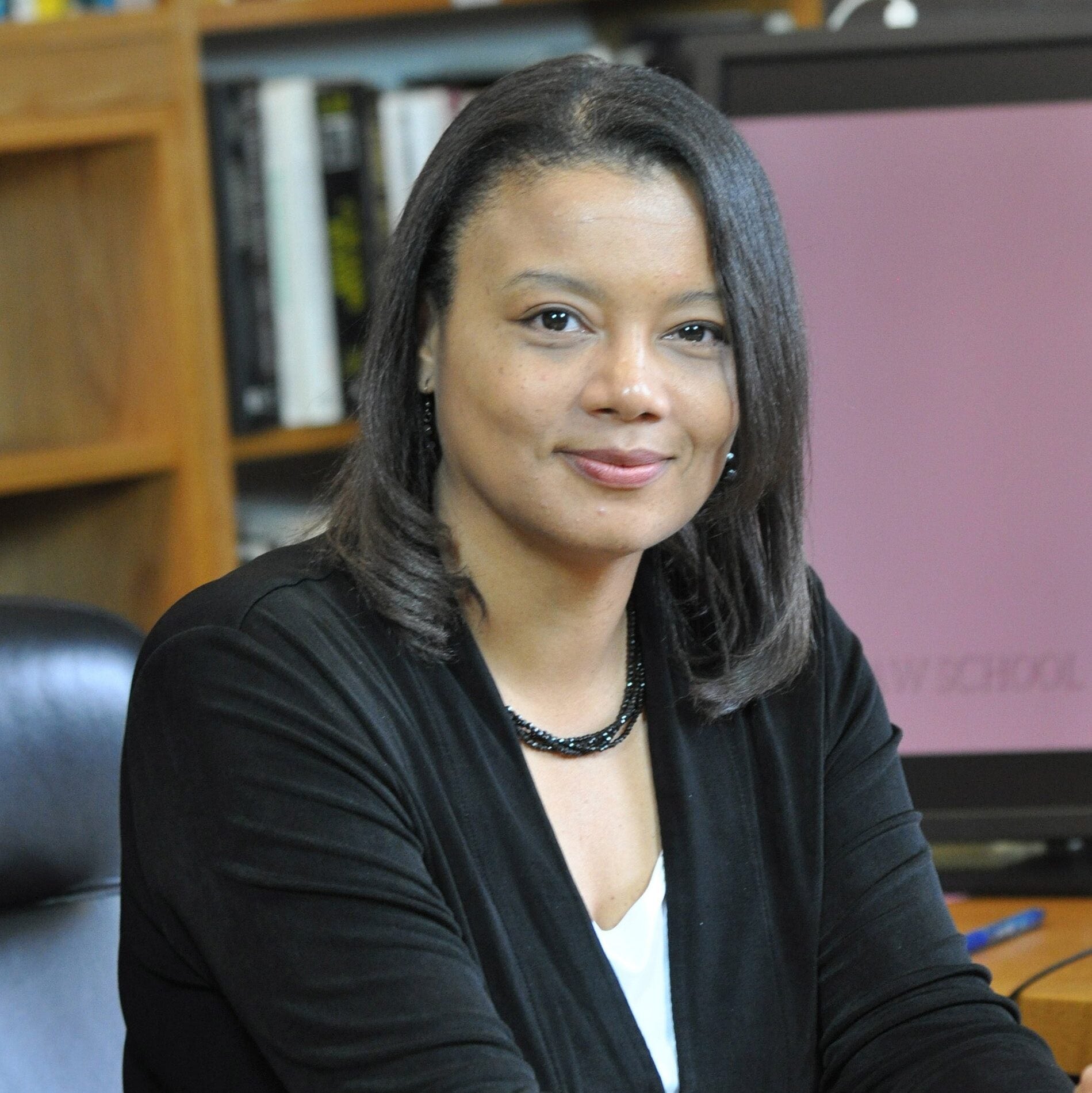
Dean, Harvard Radcliffe Institute
Daniel P.S. Paul Professor of Constitutional Law, Harvard Law School
Professor of History, Faculty of Arts and Sciences, Harvard University
Tomiko Brown-Nagin is dean of Harvard Radcliffe Institute, one of the world’s leading centers for interdisciplinary research across the humanities, sciences, social sciences, arts, and professions. She is also the Daniel P.S. Paul Professor of Constitutional Law at Harvard Law School and a professor of history at Harvard University.
An award-winning legal historian and an expert in constitutional law and education law and policy, she is a member of the American Academy of Arts and Sciences, the American Law Institute, and the American Philosophical Society; a fellow of the American Bar Foundation; a distinguished lecturer for the Organization of American Historians; and a member of the board of directors of ProPublica. Brown-Nagin has published articles and book chapters on a wide range of topics, including the Supreme Court’s equal protection jurisprudence, civil rights law and history, the Affordable Care Act, and education reform. She is a contributing editor to POLITICO Magazine as well as a frequent lecturer and media commentator.
Brown-Nagin’s latest book, Civil Rights Queen: Constance Baker Motley and the Struggle for Equality (Pantheon, 2022), explores the life and times of the pathbreaking lawyer, politician, and judge. It won the Order of Coif book award, among other honors. Her book Courage to Dissent: Atlanta and the Long History of the Civil Rights Movement (Oxford University Press, 2011) won a 2012 Bancroft Prize in American History, among other honors.
In 2019, Brown-Nagin was appointed chair of the Presidential Committee on Harvard and the Legacy of Slavery, which was anchored at the Radcliffe Institute. The Committee issued a landmark report detailing the University’s direct, financial, and intellectual ties to slavery, which resulted in Harvard’s commitment to redress harms to descendant communities in the United States and in the Caribbean.
Devon Carbado
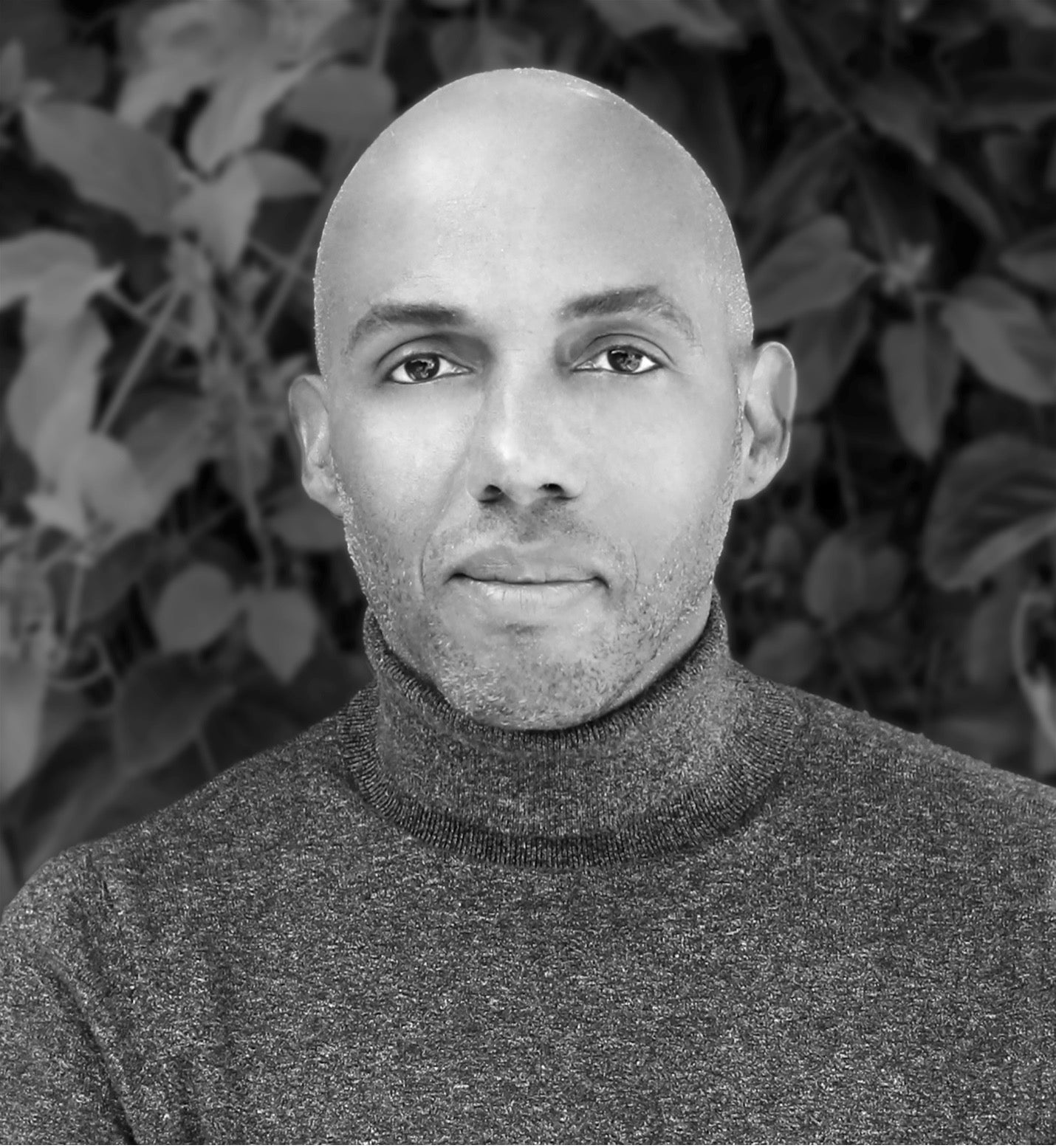
The Honorable Harry Pregerson Professor of Law, UCLA Law School
The Honorable Harry Pregerson and Distinguished Professor of Law at UCLA School of Law, Professor Carbado earned his B.A. in History from UCLA and his Juris Doctorate from Harvard Law School. Professor Carbado has served as both an associate vice chancellor and an associate provost at UCLA, and his scholarly expertise resides at the intersection of Constitutional Criminal Procedure, Constitutional Law, and Anti-discrimination law and theory, including Critical Race Theory. His publications include Race Law Stories, (Foundation Press, 2008) (with Rachel Moran), Acting White? Rethinking Race in “Post Racial” America (Oxford University Press, 2013) (with Mitu Gulati), The long Walk to Freedom: Runaway Slave Narratives (Beacon Press, 2012) (with Donald Weise), Critical Race Judgments: Rewritten U.S. Court Opinions on Race and the Law (Cambridge, 2022) (with Bennett Capers, Robin Lenhardt, and Angela Onwuachi-Willig), and Unreasonable: Black Lives, Police Power, and the Fourth Amendment (New Press, 2022). In addition to being twice elected Professor of the Year by graduating classes at UCLA School of Law and receiving the Law School’s Rutter Award for Excellence in Teaching, Professor Carbado has also received the university-wide Distinguished Teaching Award, with special notation as the recipient of the Eby Award for the Art of Teaching. The winner of two lambda literary awards, the Clyde Ferguson and Derrick Bell awards from the Minority Group Section of the Association of American Law Schools, the Prose Prize from the Association of American Publishers, and the John Hope Franklin Prize from the Law and Society Association, Professor Carbado was an inaugural recipient of the Fletcher Foundation Fellowship, which, modeled on the Guggenheim, is awarded to scholars whose work furthers the goals of Brown v. Board of Education. A former Vice Dean of UCLA School of Law, Professor Carbado has also taught at UC Berkeley School of Law and Harvard Law School. Part of the inaugural cohort of Atlantic Fellows for Racial Equity, Professor Carbado is currently a Global Atlantic Fellow and a Visiting Professor of Law at NYU Law school. He is collaborating on two forthcoming books, one on race, racism, and international law (with Stanford University Press) and the other on race and the law school curriculum (with Oxford University Press).
Guy-Uriel Charles
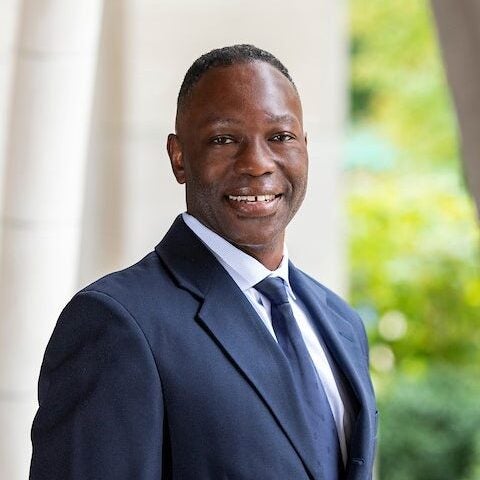
Charles Ogletree, Jr. Professor of Law, Harvard Law School
Faculty Director, Charles Hamilton Houston Institute for Race & Justice
Guy-Uriel E. Charles is the Charles J. Ogletree Jr. Professor of Law at Harvard Law School where he also directs the Charles Hamilton Institute for Race and Justice. He writes about how law mediates political power and how law addresses racial subordination. He teaches courses on civil procedure; election law; constitutional law; race and law; critical race theory; legislation and statutory interpretation; law, economics, and politics; and law, identity, and politics. He is a member of the American Academy of Arts & Sciences and the American Law Institute. He was appointed by President Joseph Biden to the Presidential Commission on the Supreme Court of the United States. He is currently working on a book, with Luis Fuentes-Rohwer, on the past and future of voting rights, under contract with Cambridge University Press, which argues that the race-based model that underlies the Voting Rights Act has run its course and that the best way to protect against racial discrimination in voting is through a universal, positive rights model of political participation. He is also co-editing, with Aziza Ahmed, a handbook entitled Race, Racism, and the Law, under contract with Edward Elgar Publishing. This book will survey the current state of research on race and the law in the United States and aims to influence the intellectual agenda of the field.
His academic articles have appeared in Constitutional Commentary, The Michigan Law Review, The Michigan Journal of Race and Law, The Georgetown Law Journal, The Journal of Politics, The California Law Review, The North Carolina Law Review, and others. He is co-author of Election Law in The American Political System (with James Gardner) and Racial Justice & Law: Cases And Materials (with Ralph Richard Banks, Kim Forde-Mazrui and Cristina Rodriguez). He is co-editor of The New Black: What Has Changed And What Has Not With Race In America (with Kenneth Mack) and Race, Reform, And Regulation Of The Electoral Process: Recurring Puzzles In American Democracy (with Heather Gerken and Michael Kang).His public writings have appeared in the New York Times, Washington Post, L.A. Time, Time, The Atlantic, Slate, among many venues. He has delivered distinguished lectures at various universities including University of California, Davis Law School, University of Richmond Law School, University of Oregon Law School, William and Mary Law School.
Professor Charles received his JD from the University of Michigan Law School and clerked for The Honorable Damon J. Keith of the United States Court of Appeals for the Sixth Circuit. While at the University of Michigan, he was one of the founders and the first editor-in-chief of the Michigan Journal of Race & Law. From 1995-2000, he was a graduate student in political science at the University of Michigan.
Before teaching at Harvard, he taught at Duke Law School and at the University of Minnesota Law School. He also served as interim co-dean at the University of Minnesota from 2006-2008. He has been a visiting professor at Georgetown, Virginia, and Columbia law schools. He was a past member of the National Research Commission on Elections and Voting and the Century Foundation Working Group on Election Reform. In 2006, he was awarded the distinguished teaching award at the University of Minnesota Law School. In 2016, he was awarded the distinguished teaching award at Duke Law School.
Justin Driver
Robert R. Slaughter Professor of Law, Yale Law School
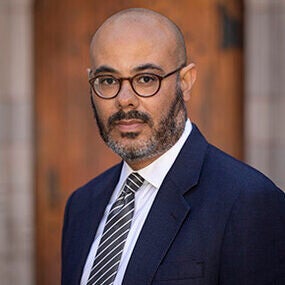
Justin Driver is the Robert R. Slaughter Professor of Law at Yale Law School. He teaches and writes in the area of constitutional law and is the author of The Schoolhouse Gate: Public Education, the Supreme Court, and the Battle for the American Mind. The book was selected as a Washington Post Notable Book of the Year and an Editors’ Choice of The New York Times Book Review. The Schoolhouse Gate also received the Steven S. Goldberg Award for Distinguished Scholarship in Education Law, and was a finalist for the American Bar Association’s Silver Gavel Award and Phi Beta Kappa’s Ralph Waldo Emerson Book Award.
A recipient of the American Society for Legal History’s William Nelson Cromwell Article Prize, Driver has a distinguished publication record in the nation’s leading law reviews. He has also written extensively for general audiences, including pieces in Slate, The Atlantic, The New York Times, The Washington Post, and The New Republic, where he was a contributing editor. An elected member of the American Law Institute and of the American Academy of Arts & Sciences, Driver is also an editor of the Supreme Court Review. In 2021, President Biden appointed Driver to serve on the Presidential Commission on the Supreme Court of the United States.
Previously, Driver was the Harry N. Wyatt Professor of Law at the University of Chicago. Driver is a graduate of Brown, Oxford (where he was a Marshall Scholar), Duke (where he received certification to teach public school), and Harvard Law School (where he was an editor of the Harvard Law Review). After graduating from Harvard, Driver clerked for then-Judge Merrick Garland, Justice Sandra Day O’Connor (Ret.), and Justice Stephen Breyer.
Benjamin Eidelson
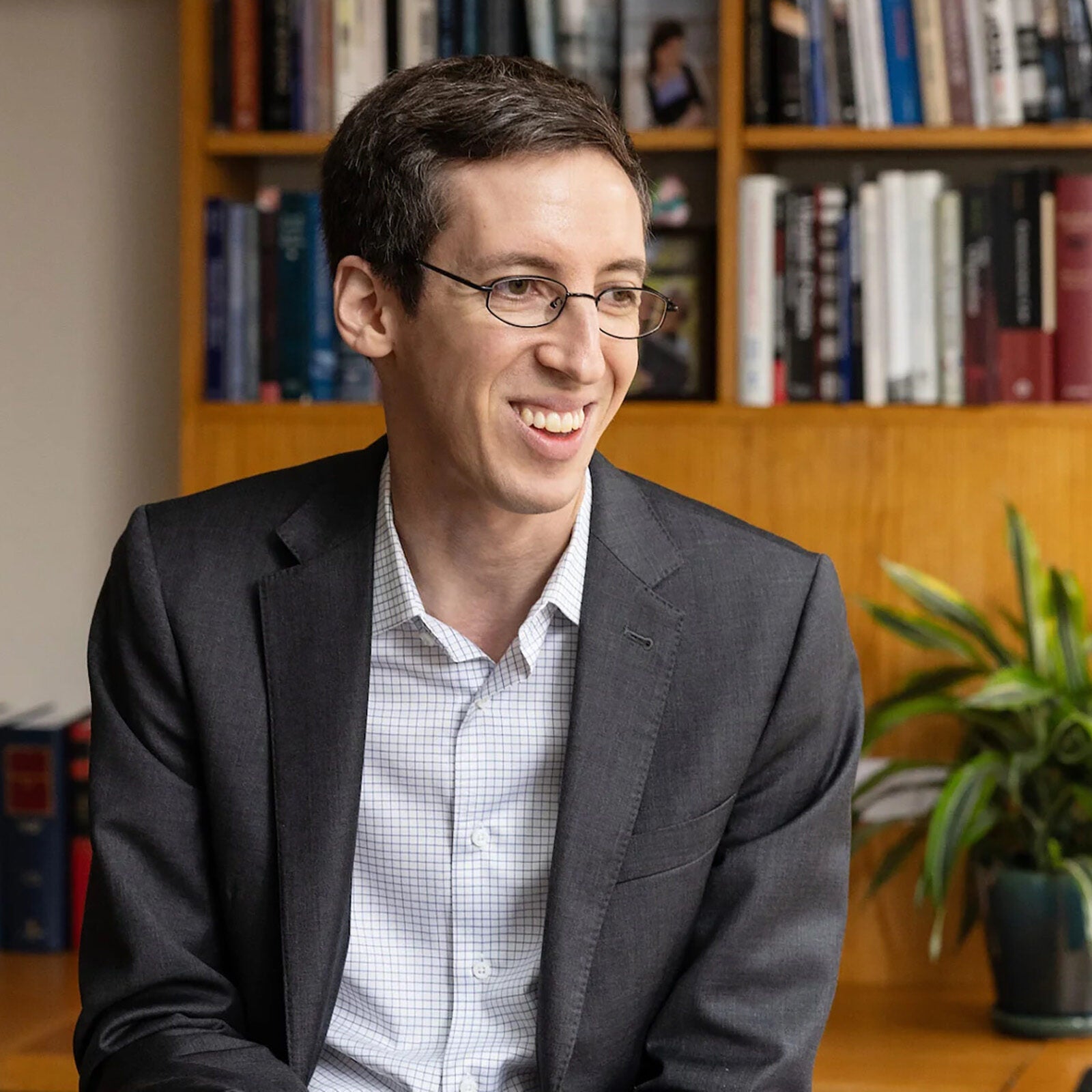
Professor of Law, Harvard Law School
Benjamin Eidelson, a scholar of public law and issues at the intersection of law and philosophy, joined the Law School faculty in 2019. He writes and teaches primarily in the areas of constitutional law, antidiscrimination law, statutory interpretation, administrative law, and legal theory.
His first book, Discrimination and Disrespect, based on his doctoral dissertation in philosophy, develops an account of wrongful discrimination rooted in the moral demands of respect for persons. His writing for broader audiences has appeared in The New York Times, Slate, and other publications.
Eidelson has also litigated significant cases involving constitutional law, administrative law, and immigration. In 2019, he developed and advanced a legal theory that was adopted by the Supreme Court in its decision invalidating the rescission of the Deferred Action for Childhood Arrivals (DACA) policy. During his time in private practice, he litigated cases at all levels of the federal judiciary, including arguing an appeal in the D.C. Circuit that reinstated a challenge to the State Department’s implementation of President Trump’s “travel ban.”
Eidelson received his B.A., summa cum laude, from Yale College, and his D.Phil. and B.Phil. in Philosophy from the University of Oxford, where he studied as a Rhodes Scholar and was awarded the Gilbert Ryle Prize. He then received his J.D. from Yale Law School, where he served as the editor-in-chief of the Yale Law Journal and as a student director of the Supreme Court Advocacy Clinic. After law school, Eidelson clerked for Chief Judge Merrick B. Garland of the U.S. Court of Appeals for the D.C. Circuit and for Justice Elena Kagan of the U.S. Supreme Court.
Jonathan Feingold
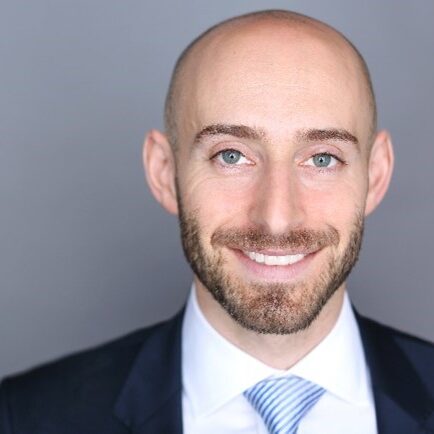
Associate Professor of Law, Boston University School of Law
Jonathan Feingold is an associate professor at Boston University School of Law and host of #RaceClass, an educational podcast that explores the intricacies of race and racism in the United States. Prof. Feingold is an expert in affirmative action, critical race theory, education law, and antidiscrimination law. Much of his scholarship explores how antidiscrimination law tends to entrench and legitimize racial inequality. Representative pieces include Affirmative Action After SFFA, Reclaiming Equality: How Regressive Laws Can Advance Progressive Ends, and All (Poor) Lives Matter: How Class-Not-Race Logic Reinscribes Race and Class Privilege.
Before joining BU Law, Prof. Feingold clerked for federal judges on the Second Circuit and Central District of California. He also served as special assistant to the vice chancellor for equity, diversity & inclusion at the University of California, Los Angeles and was a research fellow in BruinX, a research and development team within the Office of Equity, Diversity & Inclusion. Prof. Feingold received his BA from Vassar College and holds a JD from UCLA School of Law, where he specialized in critical race studies.
John Goldberg
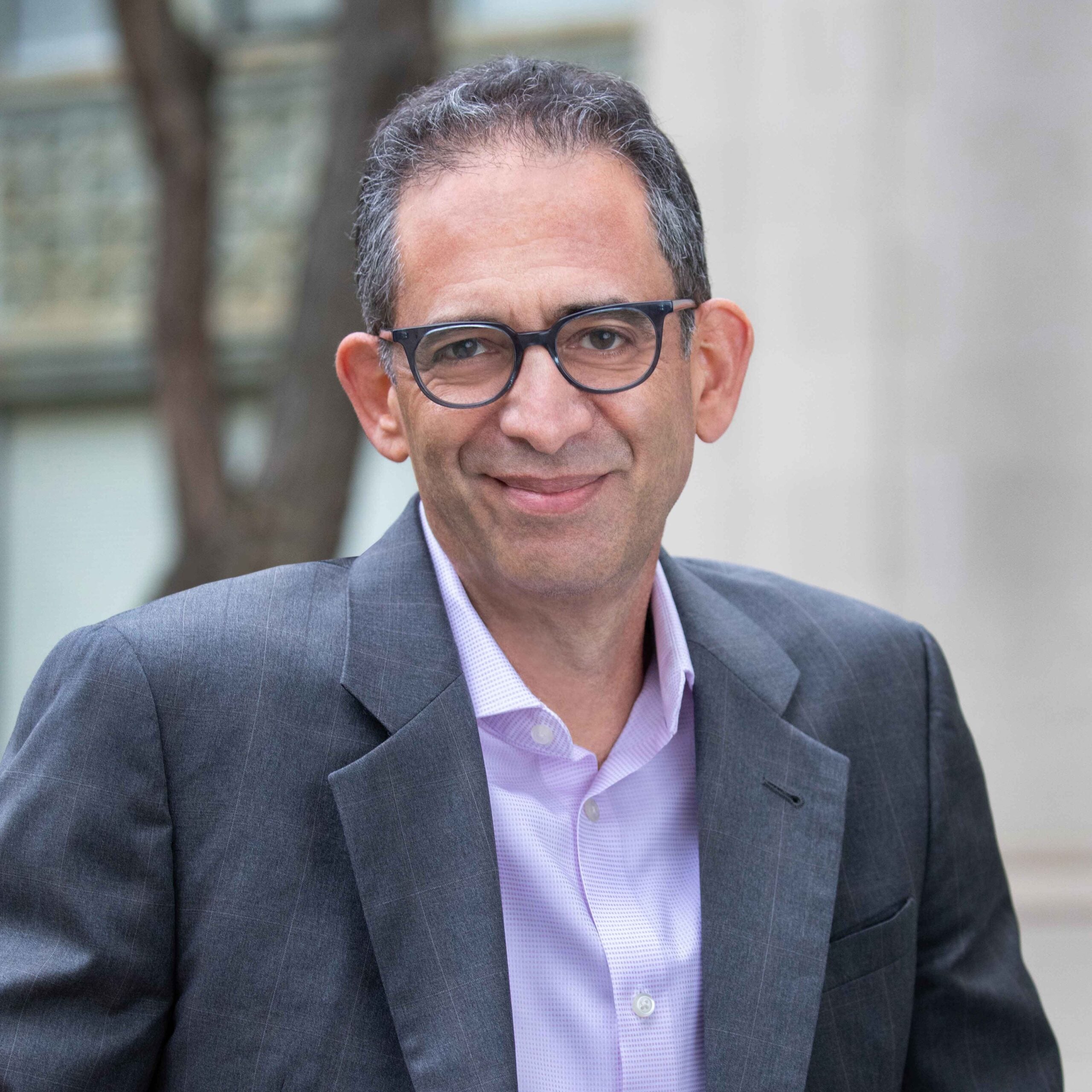
Interim Dean and Carter Professor of Jurisprudence, Harvard Law School
John Goldberg is serving as Harvard Law School’s Interim Dean. Goldberg, an expert in tort law, tort theory, and political philosophy, joined the Law School faculty in 2008 and served as a Deputy Dean from 2017 to 2022. Previously he was a faculty member of Vanderbilt Law School, where he was Associate Dean for Research (2006-08). He is co-author of Recognizing Wrongs (Harvard University Press 2020), as well as a leading casebook — Tort Law: Responsibilities and Redress (5th ed. 2021) and The Oxford Introductions to U.S. Law: Torts (2010). He has also published dozens of articles and essays in scholarly journals. Goldberg has taught an array of first-year and upper-level courses, and has received multiple teaching prizes. An Associate Reporter for the American Law Institute’s Fourth Restatement of Property, Goldberg also serves as an advisor to the Third Restatement of Torts. In addition, he is a member of the editorial boards of the Journal of Tort Law and Legal Theory, and in 2009 was Chair of the Torts and Compensation Systems Section of the Association of American Law Schools. After receiving his J.D. in 1991 from New York University School of Law, Goldberg clerked for Judge Jack Weinstein of the Eastern District of New York and for Supreme Court Justice Byron White. He earned his B.A. with high honors from the College of Social Studies, Wesleyan University. He also holds an M. Phil. in Politics from Oxford University and an M.A. in Politics from Princeton University. Before joining the Vanderbilt faculty, he briefly practiced law in Boston.
Osamudia James
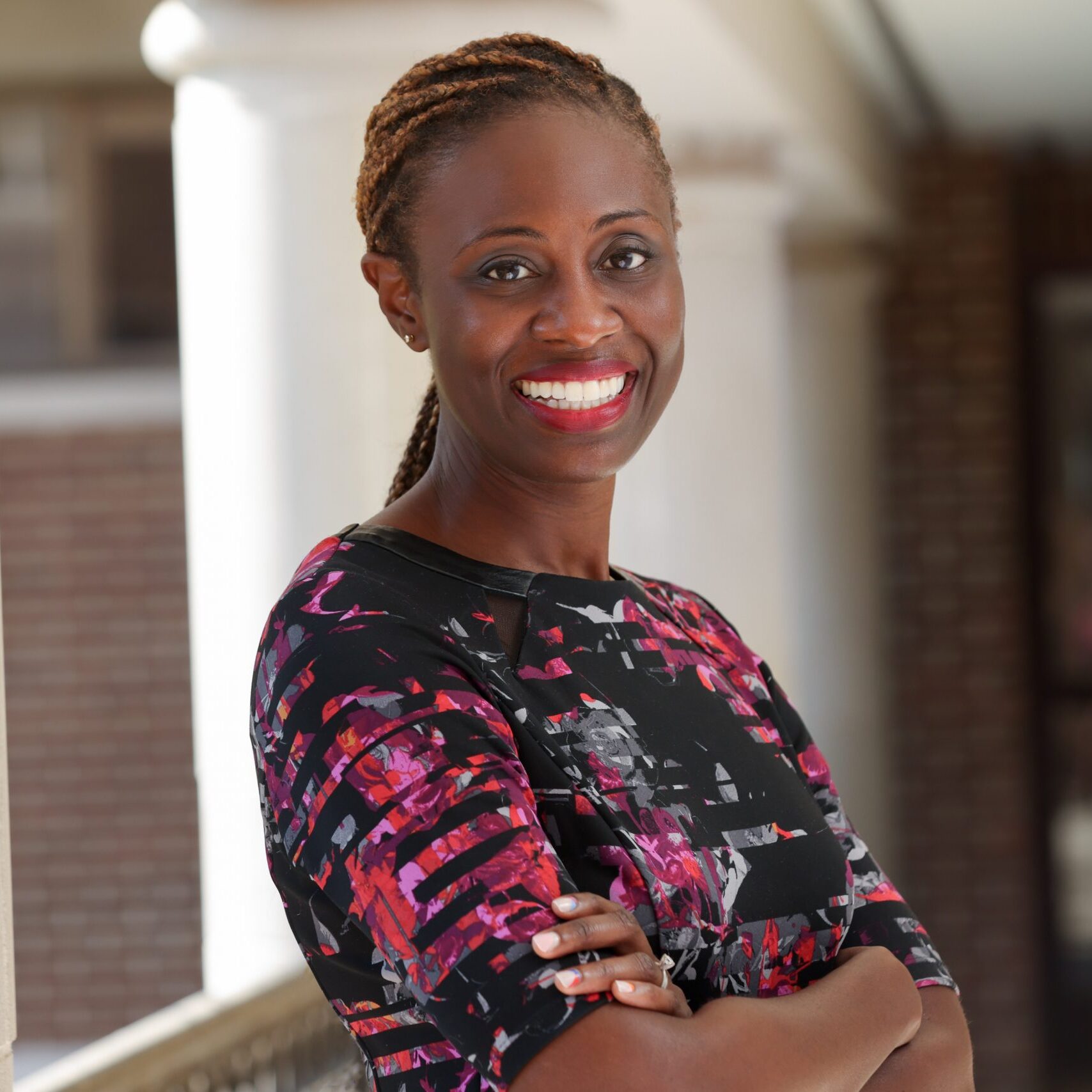
Professor of Law, UNC School of Law
Osamudia James joined the UNC School of Law faculty in 2021. Her writing and teaching interests include education law, race and the law, administrative law, and torts. James is the author of numerous articles, book chapters, and popular press commentary exploring the interaction of law and identity in the context of public education. Her work has appeared in the NYU Law Review, the Michigan Law Review, and the Minnesota Law Review, among others, as well as in the pages of the New York Times and Washington Post.
James graduated with honors from the Georgetown University Law Center, and also earned an LL.M. from the University of Wisconsin where she was a William H. Hastie Fellow. She practiced law at King & Spalding in Washington, DC before joining the faculty at the University of Miami, where she taught for 13 years prior to joining Carolina Law. James was a 2014 co-recipient of the Derrick A. Bell, Jr. Award, a national award presented to a junior faculty member who makes an extraordinary contribution to legal education, the legal system, or social justice through activism, mentoring, teaching and scholarship. She was awarded the Hausler Golden Apple Teaching Award from Miami Law in 2017, and was also selected as a University of Miami Public Voices Fellow in 2020.
Olatunde Johnson
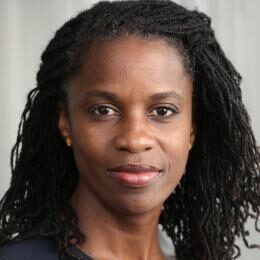
Ruth Bader Ginsburg ’59 Professor of Law, Columbia Law School
Known for her distinguished scholarship in civil procedure, legislation, and anti-discrimination law, Olatunde Johnson is equally committed to cultivating the next generation of civic-minded lawyers. In the classroom, Johnson draws on her background in legal practice and government service to illustrate how social change can be effected through litigation as well as problem-solving outside the courtroom.
Johnson’s research has helped shape the national conversation on modern civil rights legislation, anti-discrimination, fair housing, congressional power, and innovations to address discrimination and inequality. Her recent work examines state and local governments’ efforts to enhance opportunities for historically excluded groups as well as the conflicts that arise when states preempt local efforts to address discrimination and promote wage increases and affordable housing.
In 2016, Johnson was awarded the Law School’s Willis L.M. Reese Prize for Excellence in Teaching and Columbia University’s Presidential Award for Outstanding Teaching. In 2009, Columbia Law School students selected Johnson as the Public Interest Professor of the Year, praising her as a “role model for aspiring public interest lawyers.” In February 2020, she was appointed by the U.S. Department of Justice to the Resolutions Committee honoring Justice John Paul Stevens, for whom she clerked.
Nearly a decade after she joined the Columbia Law School faculty, in 2006, Johnson was appointed vice dean for Intellectual Life for the 2016–2018 term. In that role, she organized a wide range of events designed to engage the Law School community, from a Lawyers, Community, and Impact panel on recent developments in U.S. law and politics to a roundtable discussion on integration in America, faculty film series, and a book talk.
Johnson brings extensive public service experience to her work at Columbia Law School, including clerking for Judge David Tatel on the U.S. Circuit Court of Appeals for the District of Columbia and Justice John Paul Stevens on the U.S. Supreme Court. From 1997 to 2001, Johnson worked at the NAACP Legal Defense Fund, where she conducted trial- and appellate-level litigation to promote racial and ethnic equity in employment, health, and higher education. From 2001 to 2003, she served as constitutional and civil rights counsel to Senator Edward M. Kennedy on the Senate Judiciary Committee, then as a senior consultant on racial justice in the ACLU’s National Legal Department from 2003 to 2004.
In 2017, Johnson was elected a member of the American Law Institute.
Richard Kahlenberg
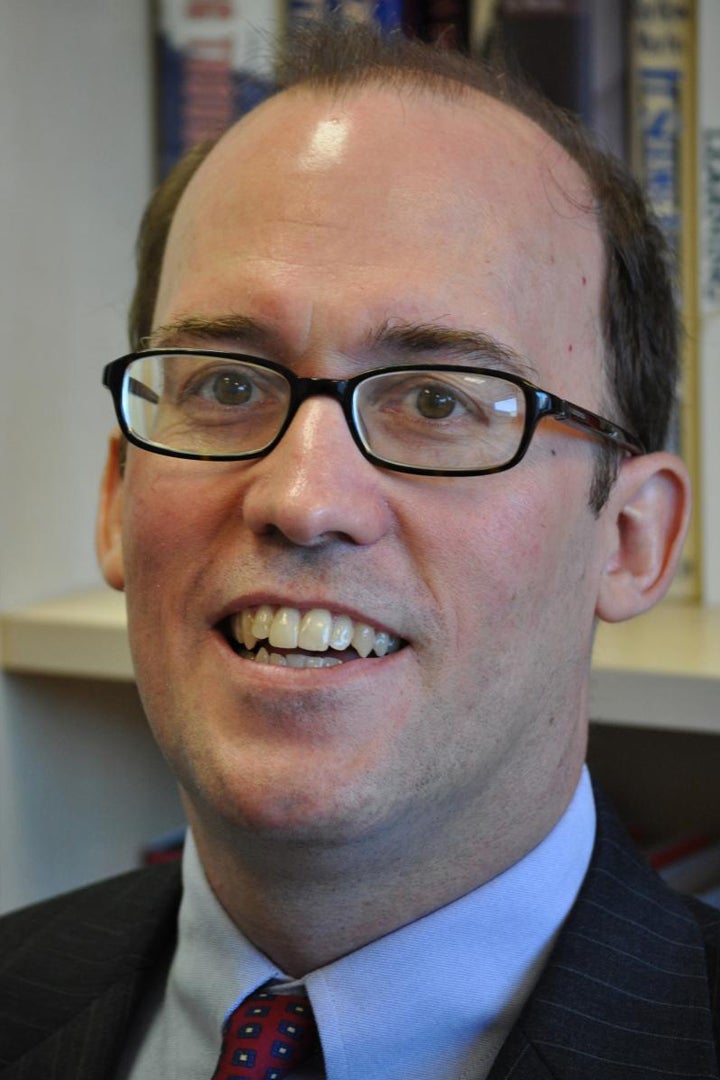
Richard D. Kahlenberg is Director of the American Identity Project and Director of Housing at the Progressive Policy Institute, and a professorial lecturer at George Washington University’s Trachtenberg School of Public Policy and Public Administration, where he teaches a class on Civil Rights and Economic Inequality. The author or editor of 18 books, he has been called “the intellectual father of the economic integration movement” in K–12 schooling and “arguably the nation’s chief proponent of class-based affirmative action in higher education admissions.” He is also an authority on housing segregation, teachers’ unions, charter schools, community colleges, and labor organizing.
Previously, Kahlenberg was a nonresident scholar at Georgetown University’s McCourt School of Public Policy, a Senior Fellow at The Century Foundation, a Fellow at the Center for National Policy, a visiting associate professor of constitutional law at George Washington University, and a legislative assistant to Senator Charles S. Robb (D-VA).
Kahlenberg’s articles have been published in The New York Times, The Washington Post, The Wall Street Journal, The Atlantic, The New Republic, and elsewhere. He has appeared on ABC, CBS, CNN, FOX, MSNBC, PBS and NPR.
His books include: Excluded: How Snob Zoning, NIMBYism, and Class Bias Build the Walls We Don’t See (PublicAffairs Press, 2023); A Smarter Charter: Finding What Works for Charter Schools and Public Education (with Halley Potter) (Teachers College Press, 2014), Why Labor Organizing Should Be a Civil Right: Rebuilding a Middle-Class Democracy by Enhancing Worker Voice (with Moshe Marvit) (Century Foundation Press, 2012); Tough Liberal: Albert Shanker and the Battles Over Schools, Unions, Race and Democracy (Columbia University Press, 2007); All Together Now: Creating Middle Class Schools through Public School Choice (Brookings Institution Press, 2001); The Remedy: Class, Race, and Affirmative Action (Basic Books, 1996); and Broken Contract: A Memoir of Harvard Law School (Hill & Wang/Farrar, Straus & Giroux, 1992). The Remedy was named one of the best books of the year by the Washington Post; and Tough Liberal was named one of the best books written on labor unions by the Wall Street Journal. He serves on the advisory board of the Pell Institute, and the Albert Shanker Institute. He is a graduate of Harvard College and Harvard Law School
Jerry Kang
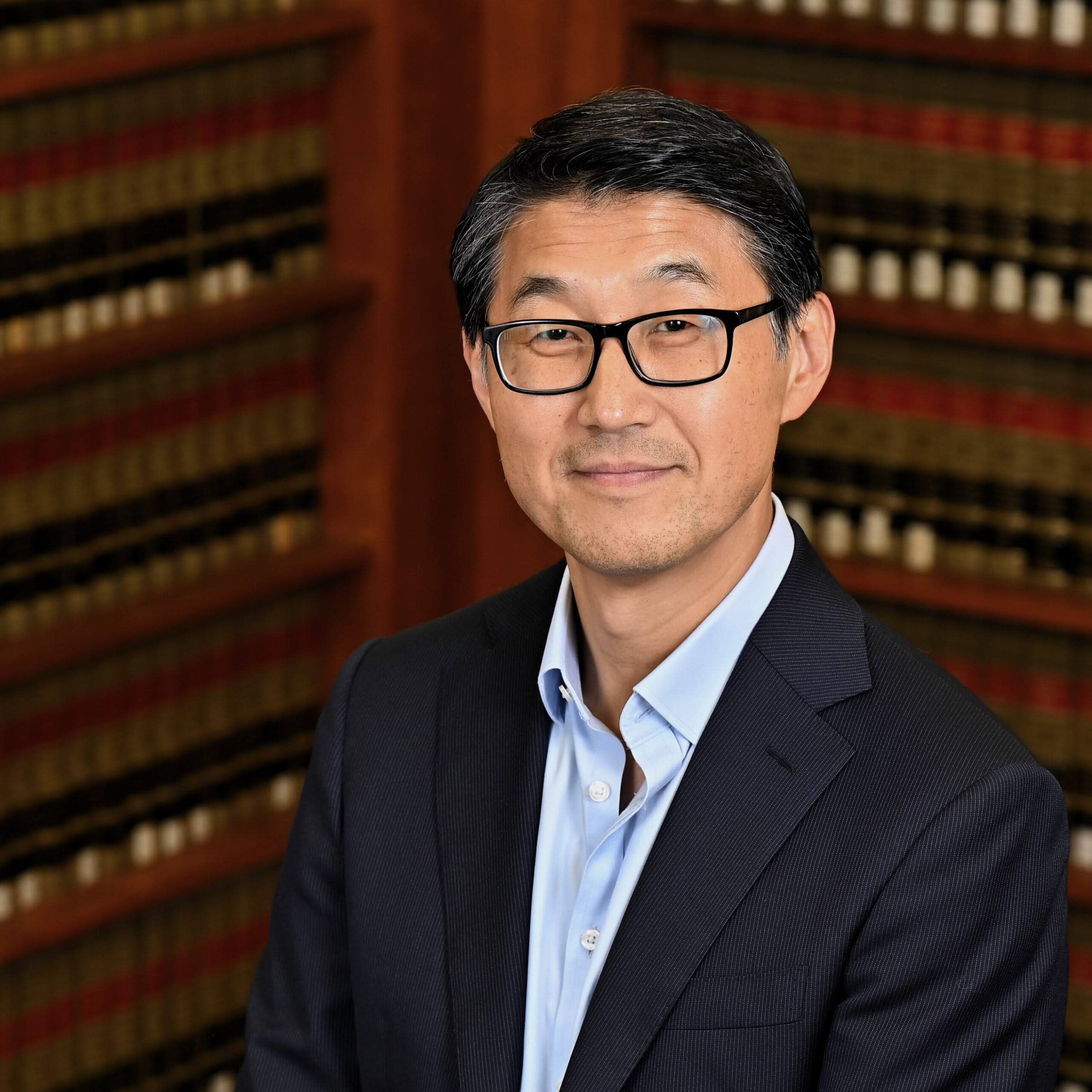
Distinguished Professor of Law, UCLA Law School
Jerry Kang is Distinguished Professor of Law at UCLA. He graduated magna cum laude from both Harvard College (physics) and Harvard Law School, where he was a supervising editor of the Harvard Law Review. After clerking for the Ninth Circuit Court of Appeals, he started his professorship at UCLA in 1995. A leading scholar on implicit bias and critical race studies, Professor Kang collaborates broadly across disciplines and industries on scholarly, educational, and advocacy projects. An inspiring teacher, he has received UCLA’s highest recognition: the Eby Art of Teaching Distinguished Teaching Award. During 2015-20, he served as the University’s Founding Vice Chancellor for Equity, Diversity and Inclusion.
Randall Kennedy
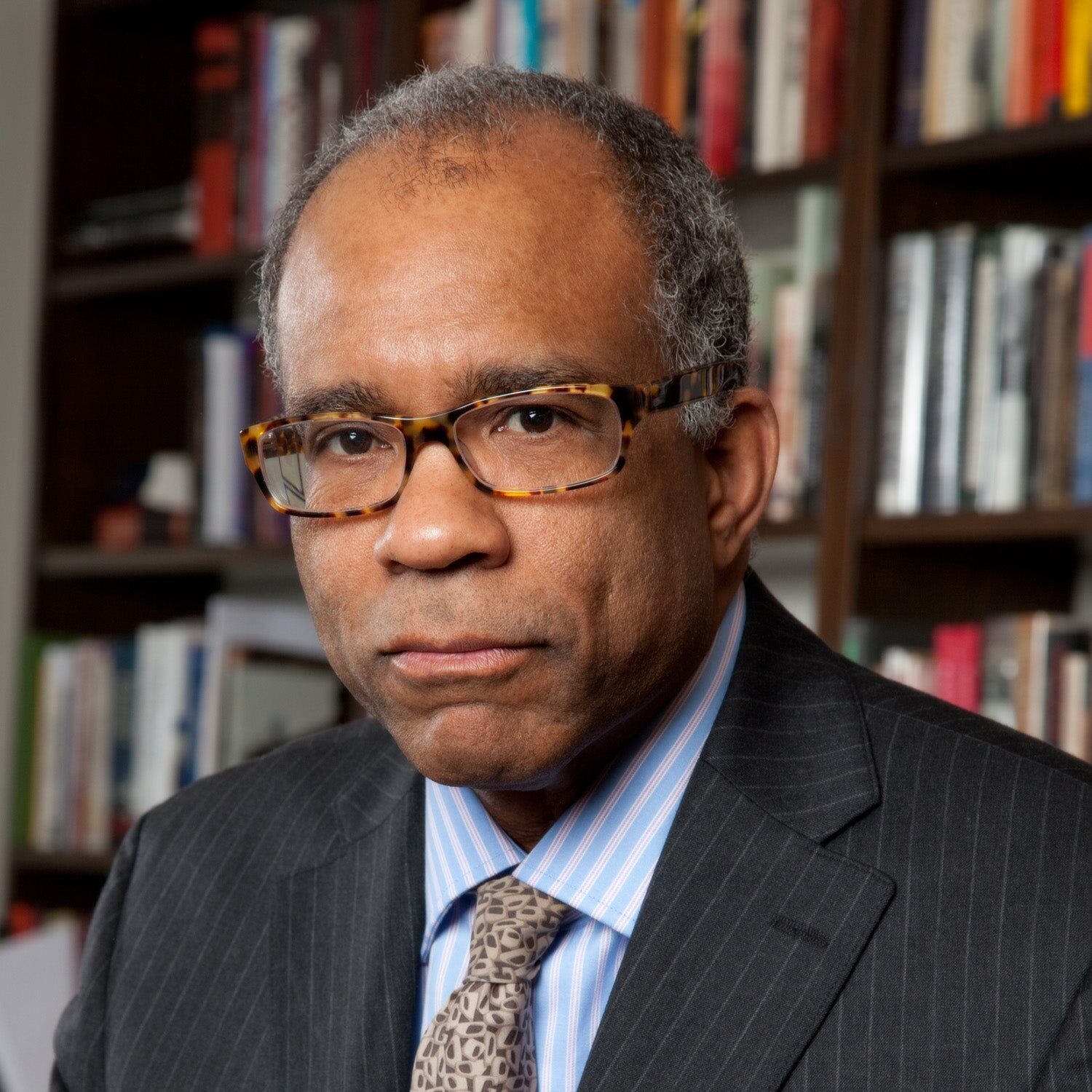
Michael R. Klein Professor of Law, Harvard Law School
Randall Kennedy is Michael R. Klein Professor at Harvard Law School where he teaches courses on contracts, criminal law, and the regulation of race relations. He was born in Columbia, South Carolina. For his education he attended St. Albans School, Princeton University, Oxford University, and Yale Law School. He served as a law clerk for Judge J. Skelly Wright of the United States Court of Appeals and for Justice Thurgood Marshall of the United States Supreme Court. He is a member of the bar of the District of Columbia and the Supreme Court of the United States. Awarded the 1998 Robert F. Kennedy Book Award for Race, Crime, and the Law, Mr Kennedy writes for a wide range of scholarly and general interest publications. His other books are For Discrimination: Race, Affirmative Action, and the Law (2013), The Persistence of the Color Line: Racial Politics and the Obama Presidency (2011), Sellout: The Politics of Racial Betrayal (2008), Interracial Intimacies: Sex, Marriage, Identity, and Adoption (2003), and Nigger: The Strange Career of a Troublesome Word (2002). A member of the American Law Institute, the American Academy of Arts and Sciences, and the American Philosophical Association, Mr. Kennedy is also a Trustee emeritus of Princeton University.
Nancy Leong
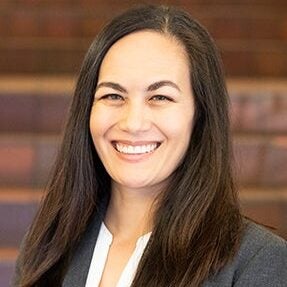
Professor Nancy Leong has published extensively on topics related to constitutional rights and remedies, criminal procedure, antidiscrimination, law and culture, and judicial decision-making. Her scholarship has appeared or will appear in the California Law Review, Cornell Law Review, Georgetown Law Journal, Harvard Law Review, Northwestern University Law Review, Stanford Law Review, Virginia Law Review, Yale Law Journal, and the Journal of Legal Education, among many others. Her first book, “Identity Capitalists,” was published by Stanford University Press in 2021.
Professor Leong has been a member of the American Law Institute (ALI) since 2017. She received the University of Denver’s Distinguished Scholar Award for the 2017-2018 academic year, which recognizes “unusually significant and meritorious achievement in professional scholarship, as evidenced by publications and their enhancing effect on classroom teaching.” Her research was selected for presentation at the 2016 Yale/Stanford/Harvard Junior Faculty Forum held at Yale Law School in New Haven, Connecticut. She was also the 2015 recipient of the Conference of Asian Pacific American Law Faculty 2015 Eric K. Yamamoto Award for excellence in scholarship and teaching. The law school student body voted her “Most Outstanding Faculty Member” in 2021 and 2022.
Professor Leong graduated magna cum laude from Northwestern University before attending Stanford Law School, where she graduated with distinction and was a member of the Stanford Law Review. After earning her law degree, she clerked for Judge Kermit Lipez of the U.S. Court of Appeals for the First Circuit. Prior to joining the University of Denver faculty, Professor Leong was an Assistant Professor at the William & Mary School of Law and an Adjunct Professor at the American University Washington College of Law. She has also been a visitor at the UCLA School of Law, the Washington University School of Law, and the University of Iowa School of Law.
A fourth-generation Coloradan, Professor Leong is also the first Asian American woman to achieve the rank of full professor at the Sturm College of Law.
Kenneth W. Mack
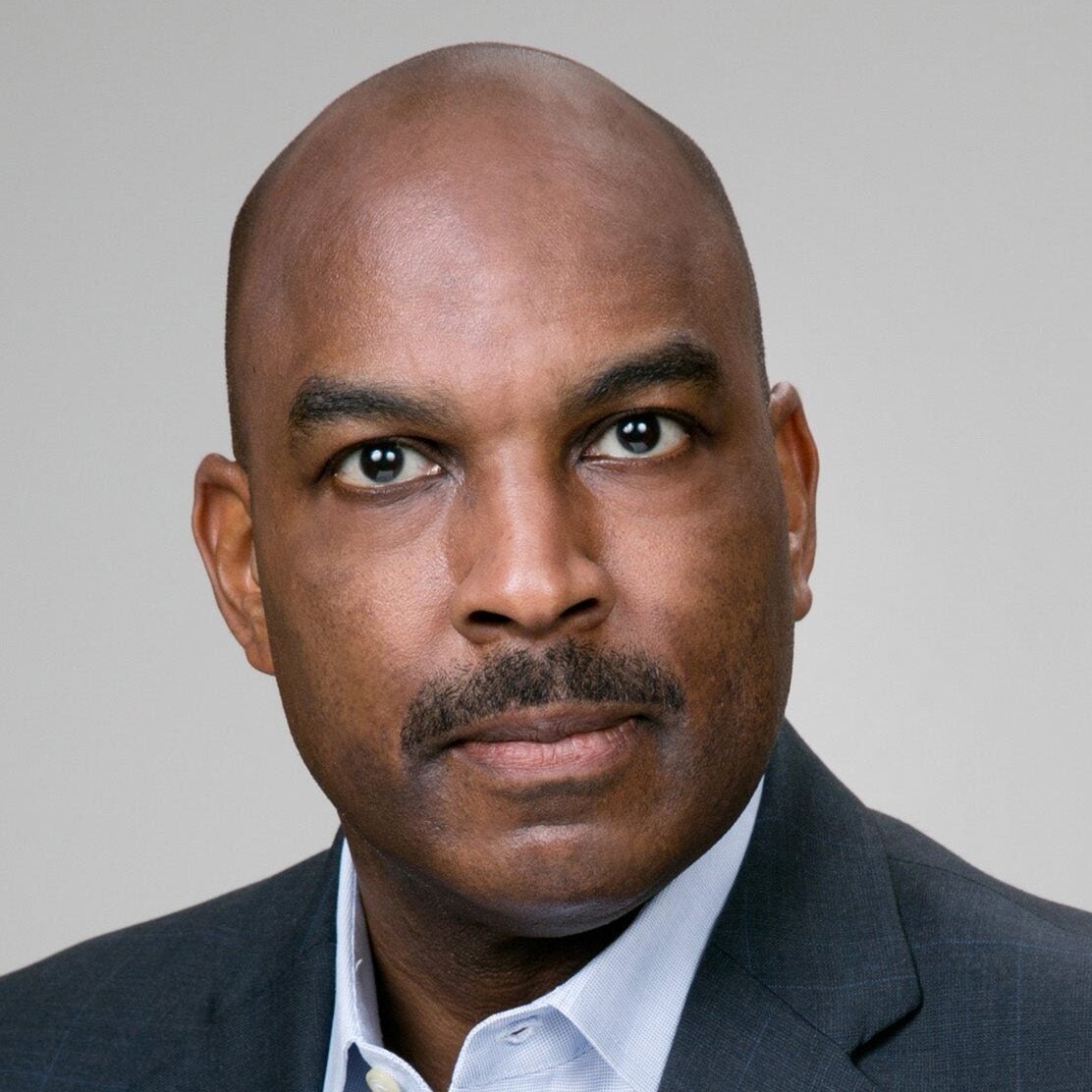
Lawrence D. Biele Professor of Law, Harvard Law School
Kenneth W. Mack is the inaugural Lawrence D. Biele Professor of Law and Affiliate Professor of History at Harvard University. He is also the co-faculty leader of the Harvard Law School Program on Law and History. His 2012 book, Representing the Race: The Creation of the Civil Rights Lawyer (Harvard University Press), was a Washington Post Best Book of the Year, a National Book Festival Selection, was awarded honorable mention for the J. Willard Hurst Award by the Law and Society Association, and was a finalist for the Julia Ward Howe Book Award. He is also the co-editor of The New Black: What Has Changed – And What Has Not – With Race in America (New Press, 2013), and the forthcoming In Between and Across: Legal History Without Boundaries (Oxford University Press). His work has been published in the Harvard Law Review, Yale Law Journal, Journal of American History, Law and History Review and other scholarly journals. In 2016-17, he was a Radcliffe Fellow at the Radcliffe Institute for Advanced Study, Harvard University. In 2007, he was named a Fletcher Fellow by the Fletcher Foundation. He has served as the co-director of the Workshops on “The History of Capitalism in the Americas” (2015-16) and “The Long Civil Rights Movement” (2008-09) at the Charles Warren Center for Studies in American History at Harvard University.
He has taught at Harvard, Stanford, and Georgetown Universities, and the University of Hawai’i, and has served as Senior Visiting Scholar, Centre for History and Economics at Cambridge University. In 2020, he received the Harvard Law School Student Government Teaching and Advising Award. In 2016, President Obama appointed him to the Permanent Committee for the Oliver Wendell Holmes Devise. He is also a member of the American Law Institute. He began his professional career as an electrical engineer at Bell Laboratories before turning to law, and history. Before joining the faculty at Harvard Law School, he clerked for the Honorable Robert L. Carter, in the United States District Court for the Southern District of New York, and practiced law in the Washington, D.C. office of the firm, Covington & Burling.
Martha Minow
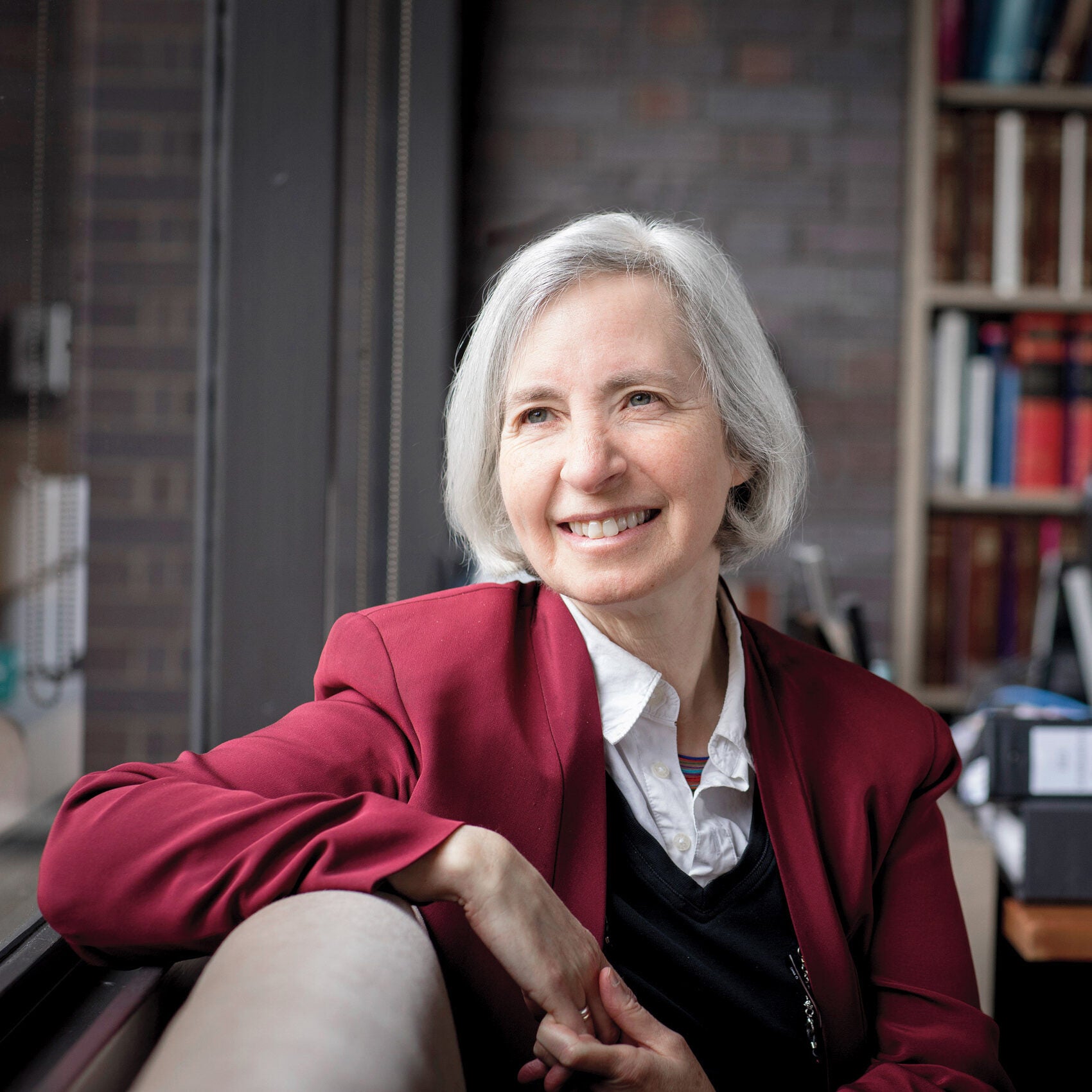
300th Anniversary University Professor, Harvard University
Martha Minow has taught at Harvard Law School since 1981, where her courses include civil procedure, constitutional law, fairness and privacy, family law, international criminal justice, jurisprudence, law and education, nonprofit organizations, and the public law workshop. An expert in human rights and advocacy for members of racial and religious minorities and for women, children, and persons with disabilities, she also writes and teaches about digital communications, democracy, privatization, military justice, and ethnic and religious conflict.
Besides her many scholarly articles published in journals of law, history, and philosophy, her books include Saving the News: Why The Constitution Calls for Government Action to Preserve the Freedom of Speech (2021); When Should Law Forgive? (2019); The First Global Prosecutor: Promise and Constraints (co-edited, 2015); In Brown’s Wake: Legacies of America’s Constitutional Landmark (2010); Government by Contract (co-edited, 2009); Just Schools: Pursuing Equality in Societies of Difference (co-edited, 2008); Breaking the Cycles of Hatred: Memory, Law and Repair (edited by Nancy Rosenblum with commentary by other authors, 2003); Partners, Not Rivals: Privatization and the Public Good (2002); Engaging Cultural Differences: The Multicultural Challenge in Liberal Democracies (co-edited 2002); Between Vengeance and Forgiveness: Facing History After Genocide and Mass Violence (1998); Not Only for Myself: Identity, Politics and Law (1997); Law Stories (co-edited 1996); Narrative, Violence and the Law: The Essays of Robert M. Cover (co-edited 1992); and Making All the Difference: Inclusion, Exclusion, and American Law (1990). She is the co-editor of two law school casebooks, Civil Procedure: Doctrine, Practice and Context (3rd. edition 2008) and Women and the Law (4th edition 2007), and a reader, Family Matters: Readings in Family Lives and the Law (1993).
Currently the co-chair of the access to justice project of the American Academy of Arts and Sciences and co-chair of the advisory board to Massachusetts Institute of Technology’s Schwartzman College of Computing, Minow has served on the Center for Strategic and International Studies Commission on Countering Violent Extremism and on the Independent International Commission Kosovo. She helped to launch Imagine Co-existence, a program of the U.N. High Commissioner for Refugees, to promote peaceful development in post-conflict societies. Her five-year partnership with the federal Department of Education and the Center for Applied Special Technology worked to increase access to the curriculum for students with disabilities and resulted in both legislative initiatives and a voluntary national standard opening access to curricular materials for individuals with disabilities.
Her honors include the Sargent Shriver Equal Justice Award (2016); the Joseph B. and Toby Gittler Prize, Brandeis University (2016); nine honorary degrees (in law, education, and humane letters) from schools in three countries; the Gold Medal for Outstanding Contribution to Public Discourse, awarded by the College Historical Society of Trinity College, Dublin, in recognition of efforts to promote discourse and intellectualism on a world stage; the Holocaust Center Award; and the Sacks-Freund Teaching Award, awarded by the Harvard Law School graduating class.
She serves on the boards of the Advantage Testing Foundation, the Campaign Legal Center, the Carnegie Corporation, the MacArthur Foundation (chair), the SCE Foundation, and public media GBH; the Council for the American Bar Association Center for Innovation. Minow served as the inaugural chair of the Deans Steering Committee of the Association of American Law Schools and as a member of the American Bar Association Diversity and Inclusion 360 Commission. She previously chaired the board of directors for the Revson Foundation (New York) and served on the boards of the Legal Services Corporation, the bi-partisan, government-sponsored organization that provides civil legal assistance to low-income Americans; the American Bar Foundation; the CBS Corporation; the Bazelon Center for Mental Health Law; the Covenant Foundation; the Iranian Human Rights Documentation Center; the Russell Sage Foundation; and Facing History and Ourselves, where she chaired the Scholars’ Board. A fellow of the American Academy of Arts & Sciences since 1992, Minow has also been a senior fellow of Harvard’s Society of Fellows, a member of Harvard University Press Board of Syndics, a senior fellow and acting director of what is now Harvard’s Safra Foundation Center on Ethics, a fellow of the American Bar Foundation and a Fellow of the American Philosophical Society. She has delivered more than 70 named or endowed lectures and keynote addresses, including the 2016 George W. Gay Lecture at Harvard Medical School’s Center for Bioethics and the 2017 Alexander Meickeljohn Lecture on media at the First Amendment at Brown University.
Minow served as Dean of Harvard Law School between 2009 and 2017 and as the inaugural Morgan and Helen Chu Dean and Professor. She co-chaired the Law School’s curricular reform committee from 2003 to 2006, an effort that led to innovation in the first-year curriculum as well as new programs of study for second- and third-year J.D. students. As dean, she strengthened public interest and clinical programs; diversity among faculty, staff, and students; interdisciplinary studies; and financial stability for the School.
After completing her undergraduate studies at the University of Michigan, Minow received a master’s degree in education from Harvard and a law degree from Yale. She clerked for Judge David Bazelon of the United States Court of Appeals for the D.C. Circuit and then for Justice Thurgood Marshall of the Supreme Court of the United States. She joined the Harvard Law faculty as an assistant professor in 1981, was promoted to professor in 1986, was named the William Henry Bloomberg Professor of Law in 2003, and became the Jeremiah Smith Jr., Professor of Law in 2005. During 2017-2018, after her service as Dean, Minow held the Carter Chair in General Jurisprudence, and in 2018, she became the 300th Anniversary University Professor at Harvard University. Her husband, Joseph W. Singer, is the Bussey Professor of Law at Harvard Law School, and their daughter, Mira Singer, is a writer and artist. Minow enjoys watching and discussing movies and keeping in touch with current and former students.
Rachel Moran
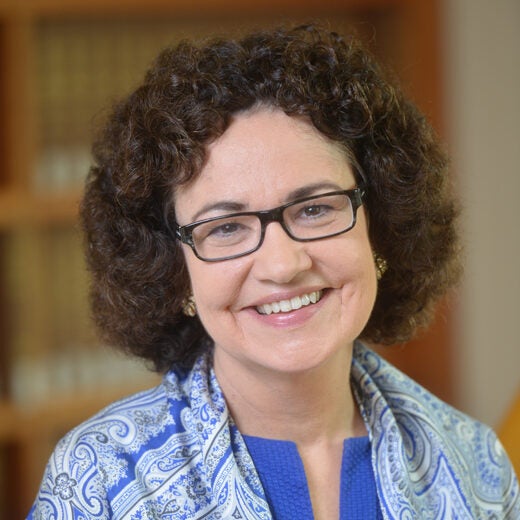
Professor of Law, Texas A&M University School of Law
Rachel Moran is a Distinguished and Chancellor’s Professor of Law at UCI Law. Prior to her appointment, she was the Michael J. Connell Distinguished Professor of Law and Dean Emerita at UCLA Law. Before that, Prof. Moran was the Robert D. and Leslie-Kay Raven Professor of Law at UC Berkeley School of Law. She also was a founding faculty member of UCI Law from July 2008 to June 2010.
Prof. Moran’s expertise includes educational policy-making and the law, Latino-related law and policy, race and the law, legal education and the legal profession, and torts. She has been a visiting law professor at Fordham University, Harvard University, New York University, Stanford University, UCLA, the University of Miami and the University of Texas.
In 2011, she was selected by President Obama to serve on the Permanent Committee for the Oliver Wendell Holmes Devise. Prof. Moran also has previously served as President and Executive Committee member of the Association of American Law Schools (AALS). In 2015, she became the inaugural Neukom Fellows Research Chair in Diversity and Law at the American Bar Foundation. She is a member of the American Bar Foundation and the American Law Institute, and she is a Fellow of the Civil Rights Project/Proyecto Derechos Civiles. Prof. Moran has been inducted into the Chancery Club of Los Angeles and the Lincoln Club, and she was elected to the Beverly Hills Bar Association’s Board of Governors. Prof. Moran received her A.B. in psychology from Stanford University and her J.D. from Yale Law School.
Throughout her career, Prof. Moran’s work has focused on sources of inequality and sites of opportunity. Her book on “Interracial Intimacy: The Regulation of Race and Romance” explored the role of family and private life in producing racial stratification and separation. Her extensive and ongoing research on educational access and equity evaluates how public schools shape the lives of the nation’s most vulnerable students, whether they are children of color, live in poverty, are undocumented, or speak a language other than English. Prof. Moran’s current project on “The Future of Latinos in the United States: Law, Opportunity, and Mobility” explores how law and policy will affect the mobility and opportunity of the country’s burgeoning Latino population in four key areas: immigration, education, economic participation, and civic and political engagement.
Melissa Murray
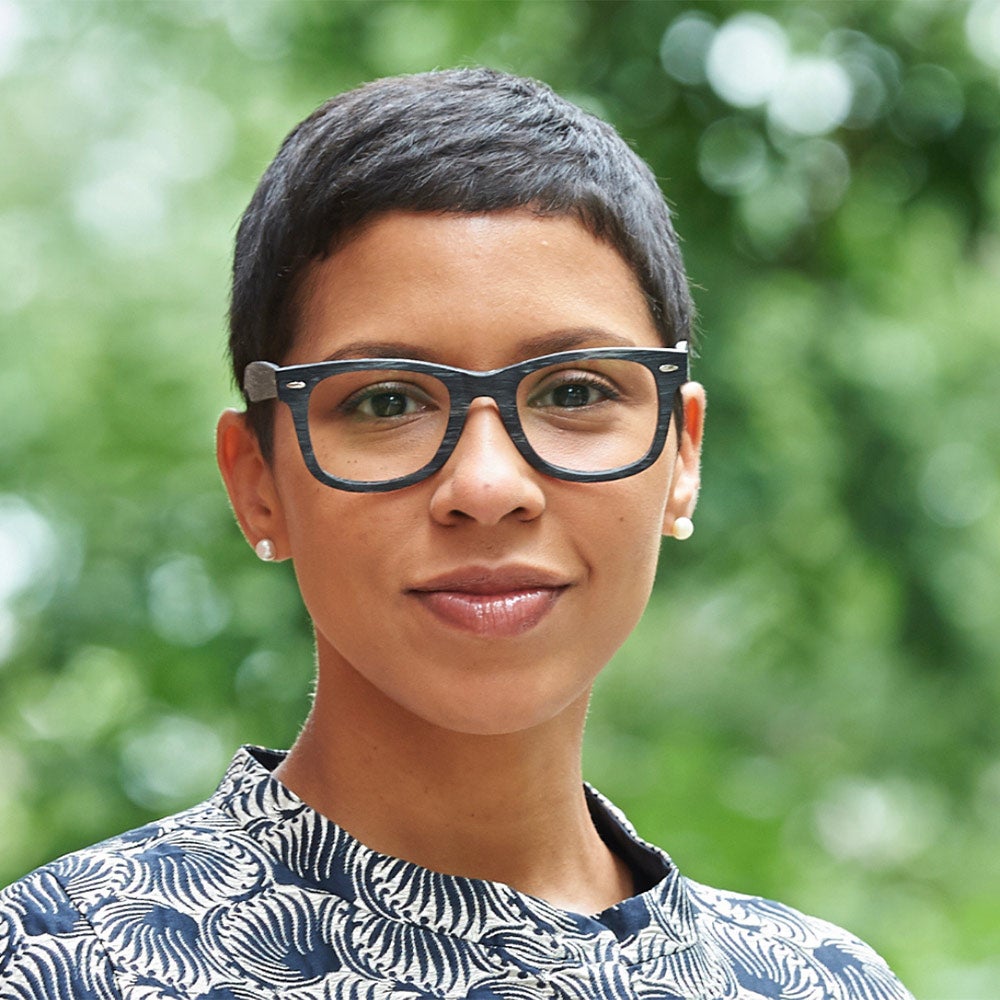
Professor of Constitutional and Family Law, NYU School of Law
Murray is a graduate of the University of Virginia, where she was a Jefferson Scholar and an Echols Scholar, and Yale Law School, where she was notes development editor of the Yale Law Journal. While in law school, she earned special recognition as an NAACP-LDF/Shearman & Sterling Scholar and was a semifinalist of Morris Tyler Moot Court.
Following law school, Murray clerked for Sonia Sotomayor, then of the US Court of Appeals for the Second Circuit, and Stefan Underhill of the US District Court for the District of Connecticut. Murray is a member of the New York bar.
Murray teaches constitutional law, family law, criminal law, and reproductive rights and justice, among other courses. Murray’s research focuses on the legal regulation of sex and sexuality and encompasses such topics as marriage and its alternatives, the marriage equality debate, the legal recognition of caregiving, and reproductive rights and justice. Her publications have appeared (or are forthcoming) in the California Law Review, Columbia Law Review, Harvard Law Review, Michigan Law Review, Pennsylvania Law Review, Virginia Law Review, and Yale Law Journal, among others. She is an author of Cases on Reproductive Rights and Justice, the first casebook to cover the field of reproductive rights and justice. She has translated her scholarly writing for more popular audiences by publishing in the New York Times, Newsweek, the San Francisco Chronicle, Vanity Fair, and the Huffington Post, and has offered commentary for numerous media outlets, including NPR, MSNBC, and PBS.
In 2013, Murray’s article, “What’s So New About the New Illegitimacy?,” was awarded the Dukeminier Awards’ Michael Cunningham Prize as one of the best sexual orientation and gender identity law review articles of 2012. Her article, “Marriage as Punishment,” won the Association of American Law Schools’ 2010-2011 Scholarly Papers Competition for faculty members with fewer than five years of law teaching. “Marriage as Punishment” was also selected by the Association of American Law Schools’ Section on Women in Legal Education as a winner of the 2010-2011 New Voices in Gender Studies scholarly paper competition. In 2010, Murray was awarded the Association of American Law School’s Derrick A. Bell Award, which is given to a junior faculty member who has made an extraordinary contribution to legal education, the legal system, or social justice. In 2011, Murray was elected to the membership of the American Law Institute.
Prior to joining the NYU faculty, Murray was on the faculty of the University of California, Berkeley, School of Law, where she was the recipient of the Rutter Award for Teaching Distinction. From March 2016 to June 2017, she served as interim dean of the Berkeley Law.
Kimberly J. Robinson
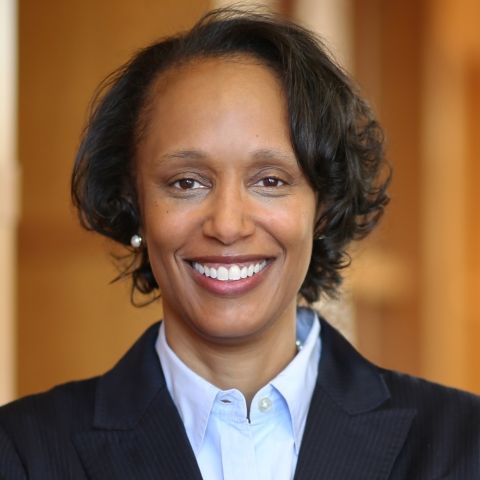
Martha Lubin Karsh and Bruce A. Karsh Bicentennial Professor of Law, UVA Law
Kimberly Jenkins Robinson is a professor at the School of Law as well as a professor at both the School of Education and Human Development, and the Batten School of Leadership and Public Policy. She is one of the nation’s leading education law experts and speaks throughout the United States about K-20 educational equity, school funding, education and democracy, equal opportunity, civil rights, Title IX and federalism.
In 2023, Robinson launched the Education Rights Institute with $4.9 million in funding from an anonymous donor. Under her leadership, the Education Rights Institute will support scholarship and engagement about a federal right to education, the key building blocks of a high-quality education and opportunity gaps in the delivery of those building blocks, as well as how school districts can best comply with Title VI of the Civil Rights Act of 1964.
Robinson’s analysis of the Supreme Court decision on affirmative action was published in The Conversation, and her insights on one approach to increase student diversity in admissions without affirmative action was published in the Harvard Law Review. Robinson was nominated and selected to be a recipient of the 2023-24 All-University Teaching Award at UVA, which recognizes the most dedicated instructors at the university. She serves as director of the Law School’s Center for the Study of Race and Law.
Robinson is a prolific scholar who has published two edited books and a diverse array of articles, book chapters and editorials. In 2019, the New York University Press published her edited volume A Federal Right to Education: Fundamental Questions for Our Democracy. In the book, Robinson brings together some of the nation’s leading law and education scholars to examine why the United States should consider recognizing a federal right to education, how the United States could recognize such a right and what the right should guarantee.
In 2015, Harvard Education Press published her book, edited with Professor Charles Ogletree Jr. of Harvard Law School, The Enduring Legacy of Rodriguez: Creating New Pathways to Equal Educational Opportunity. In it, scholars analyze the impact of the 1972 U.S. Supreme Court decision San Antonio Independent School District v. Rodriguez, which held that the U.S. Constitution does not protect a right to education. Scholars also propose innovative federal, state and local reforms for remedying the harms of Rodriguez.
Her scholarship has been published widely in leading journals, including the Harvard Law Review, the Stanford Law & Policy Review, the University of Chicago Law Review, the North Carolina Law Review and the Boston College Law Review. She wrote a report published in 2021 by The Learning Policy Institute titled “Education as a Civil Right: Remedying Race-Discrimination and Ensuring a High-Quality Education.” This report analyzes how both federal and state laws fail to protect education as a civil right and recommends how such laws could be reformed to accomplish this goal. In 2022, the Harvard Journal of Legislation published her article “Strengthening the Federal Approach to Educational Equity During the Pandemic.” It examines the educational harms inflicted by the pandemic, critiques the flaws of the federal approach to equity as it responded to the pandemic, and recommends a more impactful federal approach for educational equity for the future.
Before Robinson began her career as a professor, she practiced law in the General Counsel’s Office of the U.S. Department of Education and as an education litigation attorney with Hogan & Hartson law firm in Washington, D.C. (now Hogan Lovells). She also served as a clerk for Judge James R. Browning of the U.S. Court of Appeals for the Ninth Circuit in San Francisco. Robinson graduated cum laude from Harvard Law School and with a B.A. in foreign affairs from the University of Virginia, where she was an Echols Scholar and a recipient of the University Achievement Award.
Robinson is a member of the American Law Institute, a senior research fellow of the Learning Policy Institute and a faculty senior fellow with UVA’s Miller Center. She is a past chair of the Education Law Section of the Association of American Law Schools. Robinson is frequently interviewed by the media and has published editorials in The Hill, Education Week and other news outlets.